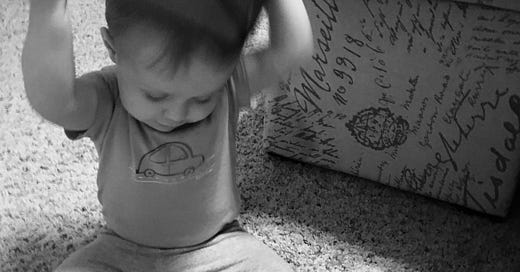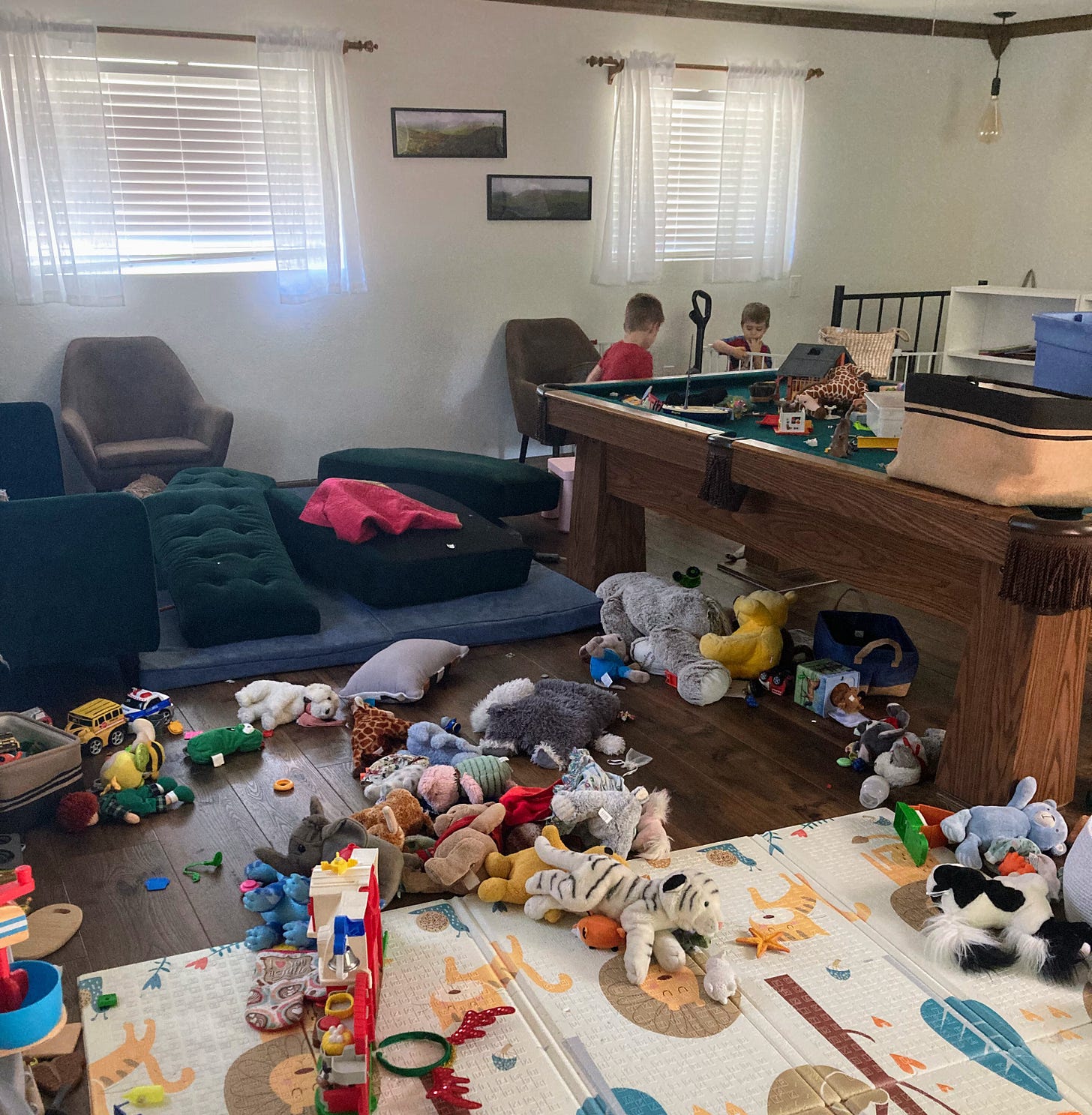My first son was born in the summer of 2018. That fall, I started my last year of graduate school.
I remember it as a time of survival: sleep-deprived from an infant who wanted to nurse throughout the night, stressed from paper deadlines and thesis meetings, overwhelmed by the messiness one tiny being was capable of creating in a one-bedroom apartment.
Thinking back, I sometimes wonder how I managed to write coherent papers and keep a baby alive. Very often, I know I felt like I wasn’t a good enough mother, a good enough writer. Good enough.
But, that May, my son celebrated his first birthday and I finished my thesis. We barely had time to celebrate as life kept rolling.
That summer, I attended the Tin House Summer Workshop for a novel-in-progress, where I met other amazing writers, including other mothers who were navigating what it meant to be a parent and a creator.
The wonderful writer Claire Vaye Watkins was our workshop leader, and I learned so much from her laid-back style and insightful feedback. She encouraged me to put more of my personal experiences—and struggles— into my novel about motherhood and marriage. She said I shouldn’t shy away from the hard moments of motherhood, and her advice pushed me to make the book much better.
I remember sitting with her on the beautiful Reed College campus when she asked how old my son was.
“Fifteen months,” I said.
“Whenever you’re still counting things in months, that’s really hard,” she told me, and it was something of a relief to hear another mother and writer commiserating with the feelings I had barely let myself feel.
Away from my son for a whole week, I had felt guilty for cherishing my time alone, but her words showed me it was okay to find motherhood hard sometimes, okay to seek out creative space.
It was after that workshop that I began to realize that my art and my motherhood did not have to exist in two separate spheres. As a priest friend advised, I should try to think of my obligations as “all a piece” of one larger vocation.
The Best Writing Advice
Fast forward a few months: I was pregnant with my second, trying to finish a novel, and experiencing all the new struggles of toddlerhood with my first son. I never felt like enough.
Then, one day, I was scrolling Instagram when I came across a rare post from Claire.
It was a series of photos that were not your typical brand of Instagram perfection: a messy living room, a kitchen with dirty dishes stacked by the sink, her child running wildly outside.
The caption was simple: I wrote something.
This was the best writing advice I had ever seen.
Her point was beautifully simple: in order for her to write something, she had to let go—at least for a short while—of less pressing obligations. So the house got messy. Her child, kept fed and safe, was given free reign otherwise.
When life gets messy or overwhelming, I try to remember this advice, especially if the messiness is partly due to a creative endeavor.
Over the past few months, I’ve been finishing a second draft of a new novel. There have been days when the kitchen table didn’t get cleared of the lunch plates until Joseph got home from work. There were days I wrote at our patio table while my sons played in the water table—and I mean literally in it, after my three-year-old managed to take off all his clothes. There were days when my sons maybe watched a little too much Bluey so I could finish a chapter, and days when their playroom was such a disaster that you literally couldn’t cross the room without stepping on a toy.
But, at the end of the day, I had written something. My sons were happy and alive and (I like to think) learning the value of independent play. My house was still standing, even if most of the chairs in the kitchen were not.
In my experience, this kind of messiness is necessary for almost any creative endeavor. Certain things get overlooked or postponed when we’re undertaking a home project, when we’re planning a vacation, even when we’re expecting and welcoming a new baby: we’re putting our energy into something we’ve decided is important for our family, so our house and our routine may look a little different.
I like to think of writer Nora Roberts’ popular advice on juggling responsibilities. Some of the balls you’re juggling are made of glass and some are made of rubber; the key is just to make sure the glass balls don’t get dropped.
I think this advice is true for everyone, but I think it’s especially valid for parents of small children. We live in a world that puts so much pressure on mothers to “have it all”—the career, the home, the perfect kids. But success looks different for every person. I have to choose what I want to prioritize at any given time.
For me, if something has to fall to the wayside, I’d rather it be a mess that will be there tomorrow than an idea that might disappear if I don’t write it down now.
When I was in grad school, there was almost always a mess in one corner of the apartment—books my son had pulled from the shelves or laundry that never got put away. Sometimes, looking at that mess, I felt like I was failing, even if I had aced a paper and soothed a baby that day.
Part of that, I think, was because I was still learning to ask for help. I’m endlessly thankful to my mom and mother-in-law who provided so much free babysitting while I was in classes (more on the importance of a “village” in another post).
But I also think I was still discovering what it meant to be all the things: a mother, a wife, a homemaker, a friend, a daughter, an artist—the list could go on and on. I was still learning that “success” in these areas of my life might look different from one day to the next.
To be honest, I sometimes still experience that feeling of failure when my home isn’t clean, when I’m running behind schedule, when my kids fall apart, when a story won’t come together. But I’m learning to stop those defeatist thoughts.
I wrote something today. And I kept my kids alive. For now, that’s enough.





